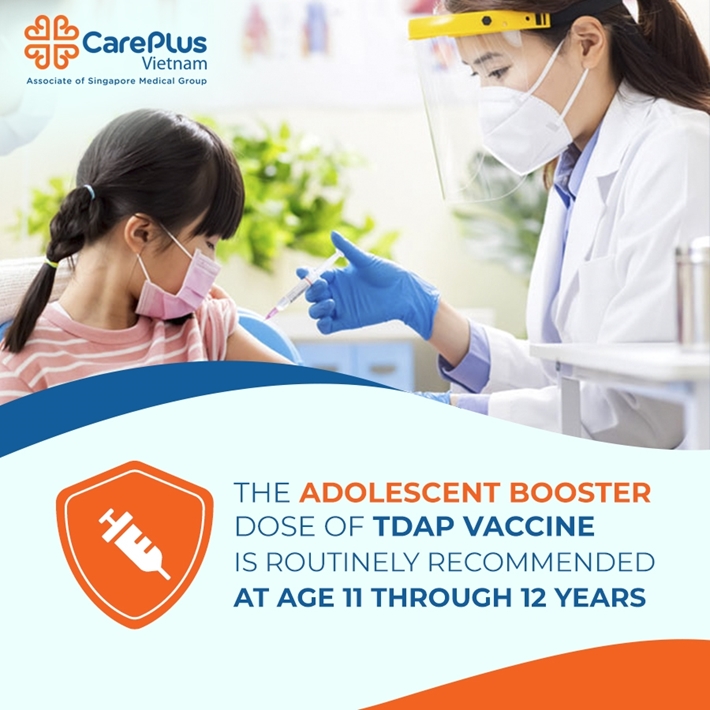The adolescent booster dose of Tdap vaccine is routinely recommended at age 11 through 12 years
In recent years, there have been many reports that diphtheria and pertussis diseases come back. In Vietnam, from 2015, the number of fatal case due to Pertussis and Diphtheria have increased.

2/8/2022 2:31:11 PM
Before the Diphtheria Pertussis Tetanus vaccine was developed, it had outbreaks in many parts of the world:
- Diphtheria: A disease of the respiratory tract that cause breathing problems, paralysis, heart failure and death. Which is very contagious when an infected person coughs and sneezes.
- Whooping cough: It causes severe coughing and throat constriction, make it difficult for infants to eat or even breathe. The disease is also highly contagious, which can lead to pneumonia, seizures, brain damage, and death.
- Tetanus: Being caused by a bacteria found in soil. When entering the body, the bacteria will secrete toxins that attack the nervous system, causing muscle spasms and death if not treated promptly.
Vaccination IS THE MOST EFFICIENT METHOD FOR Diphtheria, Whooping cough, and tetanus
Should we take how many dose of vaccine?
The Centers for Disease Control and Prevention (CDC) and the Vietnam Association of Preventive Medicine recommend that infants and young children need to be vaccinated fully 5 doses.
- One dose at 2 months of age;
- One dose at 3 months of age;
- One dose at 4 months of age;
- One dose at 18 - 24 months of age;
- One dose at 4-6 years of age.
Usually these 5 doses will be given as a combination vaccine such as 6in1, 5in1, 4in1 vaccine, to help prevent other diseases in the same injection also reduce the number of injections for children.
However, immunity to Diphtheria, Pertussis, and Tetanus is not lifelong and will decline over time, despite prior vaccination. Therefore, the vaccines need to be repeated every 10 years, corresponding to the age of 11-12 years old. But most parents often forget this reminder.
Therefore, parents need to take their children to get vaccinated against Diphtheria, Pertussis, Tetanus, and Polio at 11-12 years old to maintain immunity and protect children for a long time.